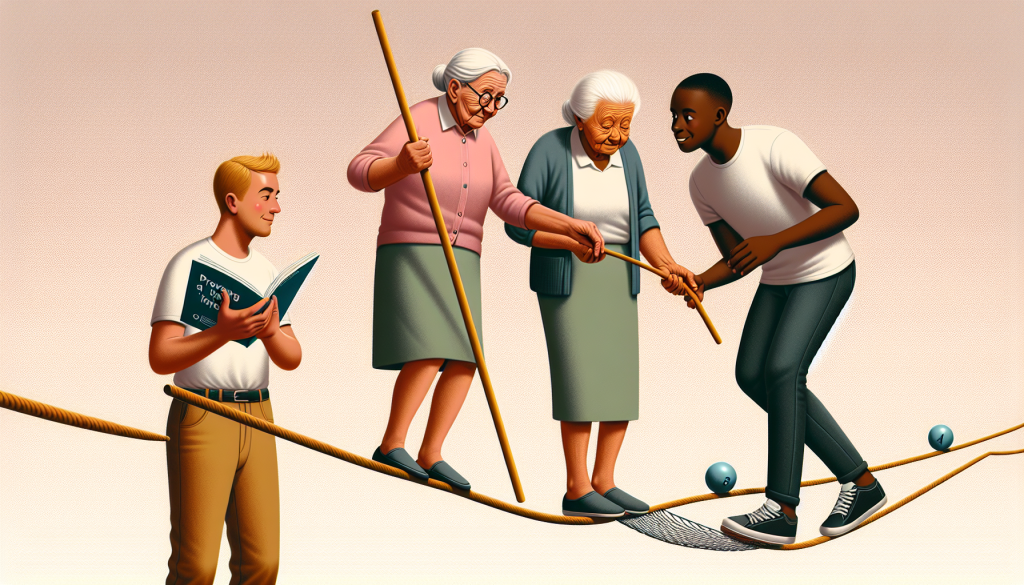
Balance Act: Preventing Falls in the Golden Years
Balance Act: Preventing Falls in the Golden Years
As we age, our bodies go through a natural process of change. Things may not be as easy as they once were, and we may start to notice a decline in our balance and stability. Falls are a common concern for older adults, and the consequences can be serious. According to the Centers for Disease Control and Prevention (CDC), falls are the leading cause of injury and death among adults aged 65 and older. However, with some simple strategies and modifications, falls can be prevented and seniors can maintain their independence and quality of life.
The Importance of Balance in Aging
Balance is defined as the ability to maintain the body’s center of gravity over its base of support. As we get older, our sense of balance can decline due to changes in vision, muscle strength, and inner ear function. This can lead to a higher risk of falls, and other negative outcomes such as fractures, hospitalizations, and loss of independence.
Furthermore, falls can have a significant psychological impact on seniors. Fear of falling can cause a decrease in physical activity, social isolation, and a decline in overall well-being. Therefore, it is essential to proactively address balance and fall prevention in the golden years.
Tips for Preventing Falls
The good news is that falls can be prevented with some simple lifestyle modifications and exercises. Here are some tips to help maintain balance and prevent falls in the golden years:
- Stay physically active: Regular exercise helps improve strength, balance, and coordination. Activities such as walking, swimming, and tai chi are excellent options for seniors to maintain their physical fitness and reduce the risk of falls.
- Check your vision: Poor vision can increase the likelihood of falls. Have your eyes checked regularly, and make sure to wear glasses if needed.
- Modify your home: Remove any potential tripping hazards, such as loose rugs or clutter. Install grab bars in the bathroom and ensure there is adequate lighting throughout the house.
- Wear proper footwear: Choose shoes that fit well, have a non-slip sole, and provide good support.
- Review your medications: Some prescriptions or combinations of medications can cause dizziness or lightheadedness, increasing the risk of falls. Talk to your doctor or pharmacist to review your medications for potential side effects.
- Use assistive devices: Canes, walkers, and other assistive devices can help seniors maintain balance and stability when walking or standing.
The Role of Nutrition in Fall Prevention
Eating a well-balanced diet is crucial for maintaining overall health, but it can also play a role in fall prevention. According to the British Nutrition Foundation, some nutrients, particularly vitamin D and calcium, are essential for maintaining strong bones. Deficiency in these nutrients can increase the risk of fractures in the event of a fall. Therefore, it is important for seniors to ensure they are getting enough calcium and vitamin D through their diet or supplements.
Conclusion
As we age, it is natural for our bodies to undergo changes, and balance and stability may decline. However, with a proactive approach, falls can be prevented, and seniors can maintain their independence and quality of life. By staying physically active, modifying the home environment, and maintaining a healthy diet, older adults can reduce their risk of falls and continue to enjoy their golden years.
